Best Practices: What to Do When RO Feed Water Quality Suddenly Deteriorates| Insights by AQUALITEK
A sudden deterioration in feed water quality can severely impact RO system performance, cause membrane fouling, and even lead to system shutdown. This article explains the risks, warning signs, and best response actions to protect your RO system and maintain stable operation.
- What Should Be Done If the Incoming Water Quality Suddenly Deteriorates?
- 1. Identify the Type of Water Quality Deterioration
- 2. Reduce RO Operating Recovery Immediately
- 3. Increase Flushing Frequency or Perform Continuous Flush
- 4. Check and Strengthen Pretreatment System
- 5. Monitor Key Parameters More Frequently
- 6. Stop the System if Water Quality Becomes Unacceptable
- 7. Conduct Immediate Cleaning If Membrane Fouling Occurs
- 8. Investigate the Root Cause and Restore Stability
- Conclusion
What Should Be Done If the Incoming Water Quality Suddenly Deteriorates?
Industrial reverse osmosis (RO) systems rely heavily on stable feed water quality. When source water suddenly worsens—due to rainfall, upstream process changes, equipment failure, or seasonal variation—the RO system can suffer rapid fouling, scaling, or performance decline.
To avoid membrane damage, it’s critical to take immediate and correct action.
1. Identify the Type of Water Quality Deterioration
Not all water quality issues are the same. First, determine what has changed.
Common types of deterioration:
•Increased turbidity (mud, suspended solids, rainwater intrusion)
•Higher SDI (poor pretreatment performance)
•Increased hardness (risk of scaling)
•Higher organic load (bacteria, COD, TOC)
•Presence of chlorine (risk of membrane oxidation)
•Temperature fluctuations (affects flux and pressure requirements)
Why this matters
Correct diagnosis determines the correct response strategy.
2. Reduce RO Operating Recovery Immediately
When feed water worsens, maintaining high recovery increases fouling and scaling risk.
Recommended action
•Lower recovery by 10–30%, depending on severity
•This increases concentrate flow and reduces concentration polarization
Benefits
•Protects membrane surface
•Reduces fouling rate
•Prevents sudden differential pressure spikes
3. Increase Flushing Frequency or Perform Continuous Flush
Sudden turbidity or SDI increases can cause rapid clogging.
Countermeasures
•Perform frequent forward flushes
•Switch to continuous flushing if SDI rises above 5
•Avoid full-pressure operation during severe deterioration
Purpose
Flushing helps keep fouling from adhering to membrane surfaces.
4. Check and Strengthen Pretreatment System
A feed water change often indicates pretreatment overload.
Inspect the following:
•Sand filter / multimedia filter turbidity performance
•Activated carbon filter exhaustion
•Cartridge filter (PP/1–5 micron) clogging
•Coagulant dosage (if applicable)
•Softener hardness breakthrough
•UF (if included) operating status
Immediate improvements
•Replace clogged PP filters
•Increase backwash frequency
•Boost coagulant dosage (for surface water applications)
5. Monitor Key Parameters More Frequently
During unstable water conditions, monitoring should be increased.
Critical parameters to track:
•Feed water SDI
•RO inlet pressure
•Differential pressure across membrane stages
•Permeate conductivity
•Temperature
•Turbidity
If any parameter rises sharply, stop the system and investigate.
6. Stop the System if Water Quality Becomes Unacceptable
If feed water exceeds RO design limits, continued operation will damage the membranes.
Example conditions requiring shutdown:
•SDI > 5 for more than several hours
•Turbidity > 1–2 NTU after pretreatment
•Chlorine detected at RO inlet
•Heavy organic contamination
•Low pH / corrosive water
During shutdown
•Keep membranes wet
•Perform periodic flushing
•Do not let the system dry
7. Conduct Immediate Cleaning If Membrane Fouling Occurs
If performance has already begun deteriorating:
Signs cleaning is required:
•Differential pressure rises 15–20%
•Permeate flow drops >10%
•Salt passage rises
•Visual signs of fouling in pretreatment units
Recommended actions
Perform targeted chemical cleaning based on fouling type:
•Acid cleaning: scaling
•Alkaline cleaning: organics
•Biocide cleaning: biological fouling
Early cleaning prevents irreversible membrane damage.
8. Investigate the Root Cause and Restore Stability
Common root causes include:
•Rainfall or seasonal source water changes
•Mechanical failure in pretreatment
•Change in factory wastewater characteristics
•Chemical dosing interruption
•Insufficient backwashing
After correction, gradually restore RO system to full operation.
Conclusion
A sudden deterioration in RO feed water quality is one of the most dangerous operating conditions. By reducing recovery, increasing flushing, strengthening pretreatment, monitoring intensively, and stopping the system when necessary, you can prevent severe fouling and ensure membrane protection.
Swift action is the key to maintaining system stability and extending membrane lifespan.




Request More Information or Expert Advice
Share a few details, and we’ll provide deeper insights, tailored suggestions, or product support.

Our 500 LPH Reverse Osmosis (RO) System is engineered to provide high-quality purified water for commercial applications. Designed with advanced RO technology, durable components, and a user-friendly interface, this system ensures consistent performance, low maintenance, and long-term reliability.
With its compact design and robust skid-mounted frame, it’s an excellent choice for businesses that demand efficiency and quality in water purification.

TWV series Reverse Osmosis (RO) systems are pre-engineered and pre-assembled units with 2.5”/4” membrane housings(single element type)for tap water(lower TDS).They are designed for overall superior performance, high recovery rates and offer great savings with low maintenance and operation costs.

TWF series Reverse Osmosis (RO) systems are pre-engineered and pre-assembled units with 4” membrane housings(multiple elements type) for tap water(lower TDS) .The medium large volumes can help meet your a variety of commercial and industrial applications. They are designed for overall superior performance, high recovery rates and offer great savings with low maintenance and operation costs.

TWE series Reverse Osmosis (RO) systems are pre-engineered and pre-assembled units with 8” membrane housings for tap water (lower TDS). The large volumes can help meet your a variety of industrial applications. They are designed for overall superior performance, high recovery rates and offer great savings with low maintenance and operation costs.
© 2026 AQUALITEK. All rights reserved.

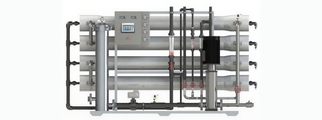
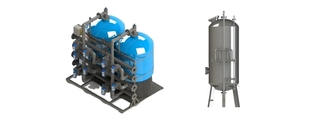
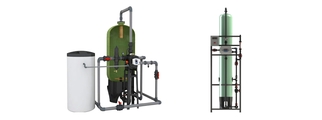
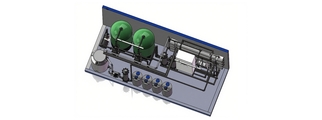
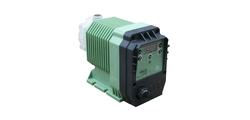
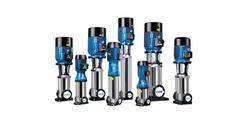
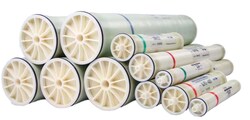
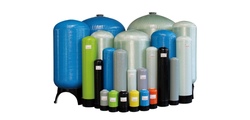
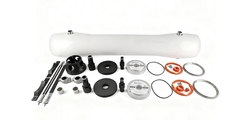
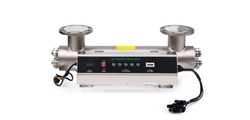
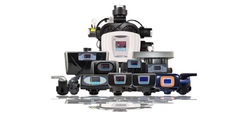
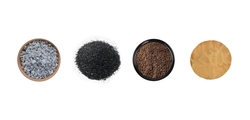
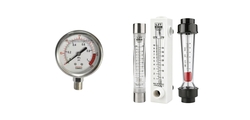
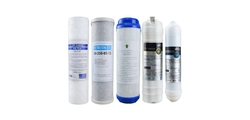
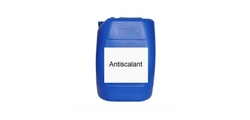
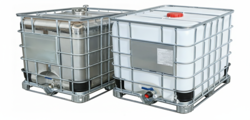
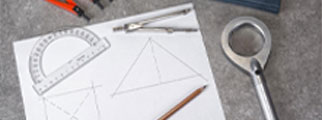



AQUALITEK- Aimee Hoo
AQUALITEK - Aimee Hoo